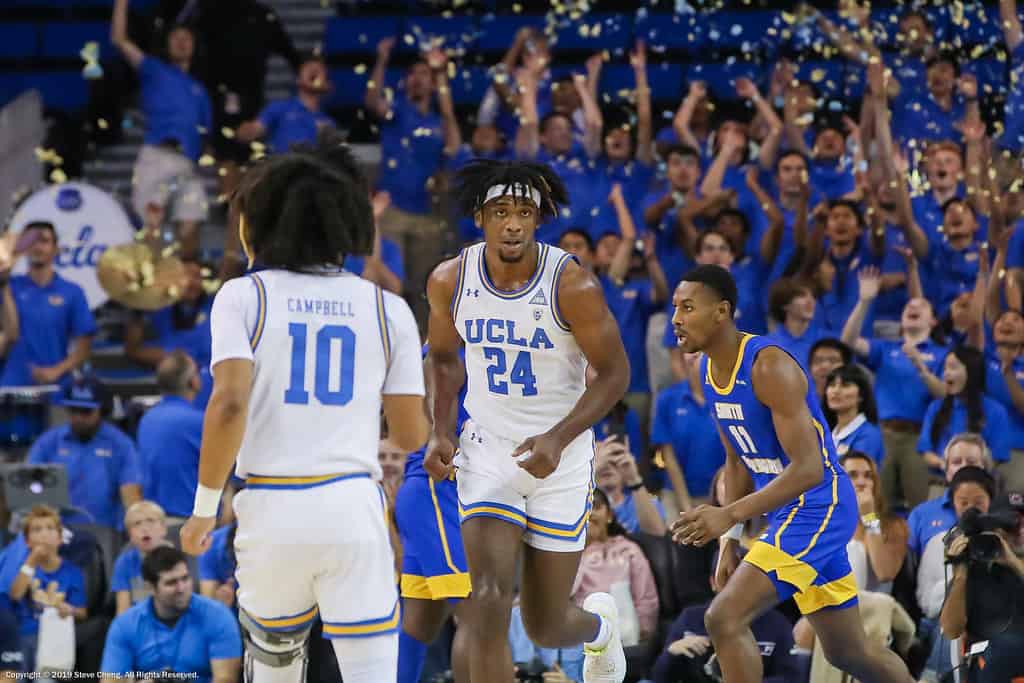Maxwell Ulin is a student at Harvard Law School.
It really, truly is infrastructure week this time. Yesterday, President Joe Biden unveiled his administration’s $2.5 trillion economic revitalization package, proposing massive new federal investments in transportation infrastructure, broadband, manufacturing, affordable housing, and care services, among other measures. The package, dubbed the “American Jobs Plan,” seeks expressly to create “union” jobs and stresses the importance of ensuring affected workers a “free and fair choice to join a union and bargaining collectively.” The administration proposes to pay for these measures in part through repealing major portions of former President Trump’s largest legislative achievement, the Tax Cuts and Jobs Act of 2017. In particular, the plan would restore the corporate tax rate—now capped at 21% of income—to 28%, as well as double the minimum tax rate for multinational corporations. Already, however, Biden’s package has drawn criticism from progressives; a report released earlier yesterday by the Economic Policy Institute (EPI) suggests that the plan would have to be over four times as big in order to address adequately some of America’s most pressing social inequities. Childcare advocates also note that while the plan would channel around $25 billion toward upgrading care facilities, it does not include measures to raise pay for childcare workers—something that Biden had pledged to do on the campaign trail.
Elsewhere in Washington, the Supreme Court heard oral arguments yesterday in Nat’l Collegiate Athletic Ass’n v. Alston, a case challenging the NCAA’s compensation restrictions for student athletes as an impermissible restraint of trade under antitrust law. Arguing that the Court ought to preserve a longstanding tradition of “amateurism” in college sports, the NCAA received a lukewarm reception from the justices. While Justices Roberts, Sotomayor, and Thomas appeared sympathetic to the NCAA arguments, Justices Kavanaugh and Kagan voiced grave concerns about how the amateurism exemption might effectively shield “exploitation of the student-athletes.” In addition to the parties, the Biden Administration also weighed in on the case, with newly minted Solicitor General Elizabeth Prelogar siding with the players in her first oral argument before the Court.
Meanwhile, an emerging judicial split over the Federal Arbitration Act (FAA) appears increasingly destined for high court scrutiny. On Wednesday, two federal district courts released conflicting opinions over whether Lyft drivers fall within the law’s transportation workers exemption. Writing for the U.S. District Court for the District of Columbia, Judge Ketanji Brown Jackson—President Biden’s recent nominee to the D.C. Circuit and a widely rumored frontrunner for the Supreme Court—issued a terse opinion rejecting drivers’ argument that they fall outside the law’s coverage. Later that day, U.S. District Judge for the Southern District of New York Alison Nathan released an opinion holding Lyft drivers regularly cross state lines and were thus clearly “engaged in interstate commerce” within the meaning of the exemption. As Michael already notes, both the First and Ninth Circuits have employed an originalist framework to recognize a narrow transport-worker exemption under the FAA and are now poised to rule on similar FAA claims by Lyft and Uber drivers, respectively. Meanwhile, the Seventh Circuit has taken a more restrictive view, ruling against GrubHub, Inc. drivers who it found tend to transport goods locally.
Also on Wednesday, acting General Counsel to the National Labor Relations Board (NLRB) Peter Ohr released a six-page memo asserting an expansive reading of employees’ organizing rights under Section 7 of the National Labor Relations Act (NLRA). According to Ohr, Section 7’s express protection of “concerted activity” encompasses a wide array of “employees’ political and social justice advocacy,” provided that there exists some connection to their interests as employees. Ohr goes on to list a number of activist issues potentially covered, including immigration, minimum wage legislation, racial discrimination, and other “societal issues.” While the current Board’s cramped understanding of Section 7 limits the present viability of his reading, Ohr nonetheless makes clear that cases implicating this broader definition will be “vigorously pursued.”
In a major victory for meatpacking workers, a federal district court in Minneapolis yesterday enjoined a Trump-era rule from the U.S. Department of Agriculture (USDA) lifting line speed limits for hog-slaughter plants. The rule, issued in September 2019, created a “New Swine Inspection System” (NSIS) for pork-packing plants that was quickly challenged in court by the United Food & Commercial Workers (UFCW) Union with the help of Public Citizen. In her opinion remanding the rule to USDA, U.S. District Judge Joan N. Erickson held that the Department had acted arbitrarily and capriciously by failing to consider the effect that lifting line-speed maximums would have on worker health and safety. Judge Erickson granted the USDA a 90-day stay of the injunction in order to allow agency to appropriately restructure its NSIS program.






Daily News & Commentary
Start your day with our roundup of the latest labor developments. See all
March 4
The NLRB and Ex-Cell-O; top aides to Labor Secretary resign; attacks on the Federal Mediation and Conciliation Service
March 3
Texas dismantles contracting program for minorities; NextEra settles ERISA lawsuit; Chipotle beats an age discrimination suit.
March 2
Block lays off over 4,000 workers; H-1B fee data is revealed.
March 1
The NLRB officially rescinds the Biden-era standard for determining joint-employer status; the DOL proposes a rule that would rescind the Biden-era standard for determining independent contractor status; and Walmart pays $100 million for deceiving delivery drivers regarding wages and tips.
February 27
The Ninth Circuit allows Trump to dismantle certain government unions based on national security concerns; and the DOL set to focus enforcement on firms with “outsized market power.”
February 26
Workplace AI regulations proposed in Michigan; en banc D.C. Circuit hears oral argument in CFPB case; white police officers sue Philadelphia over DEI policy.